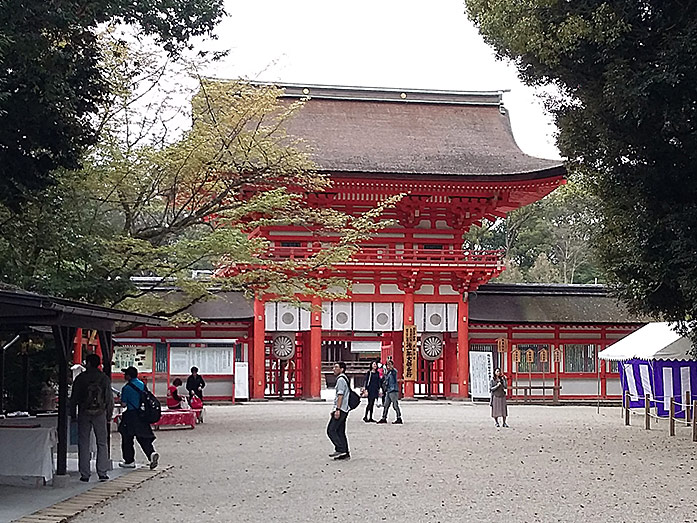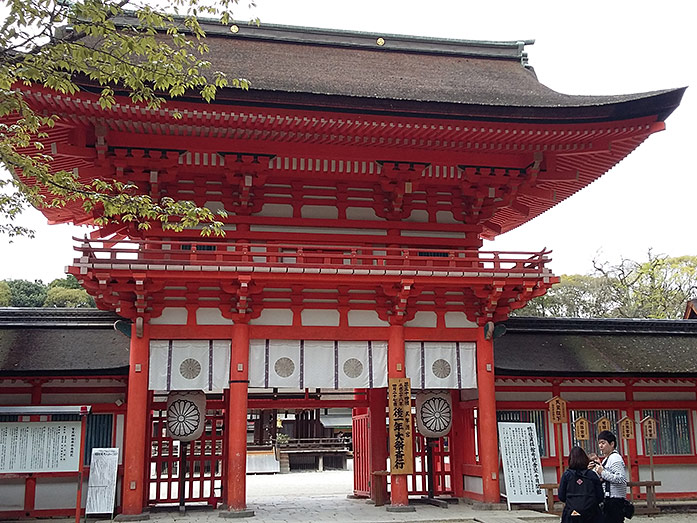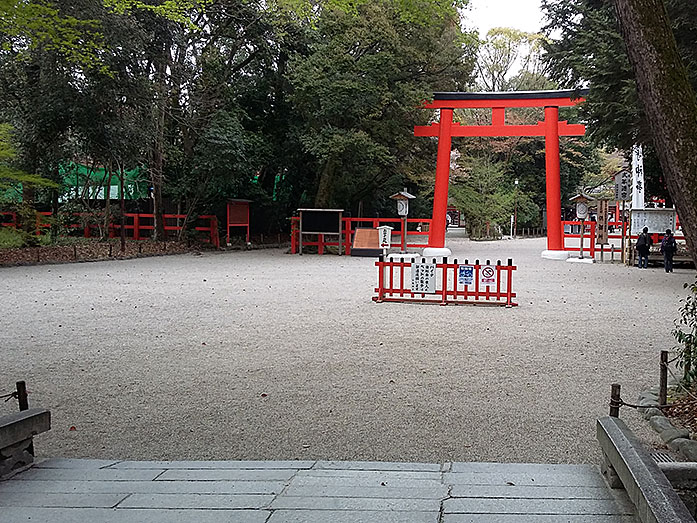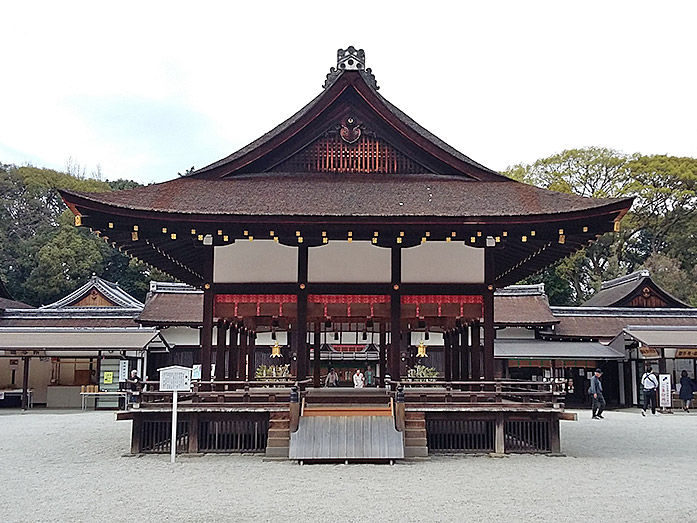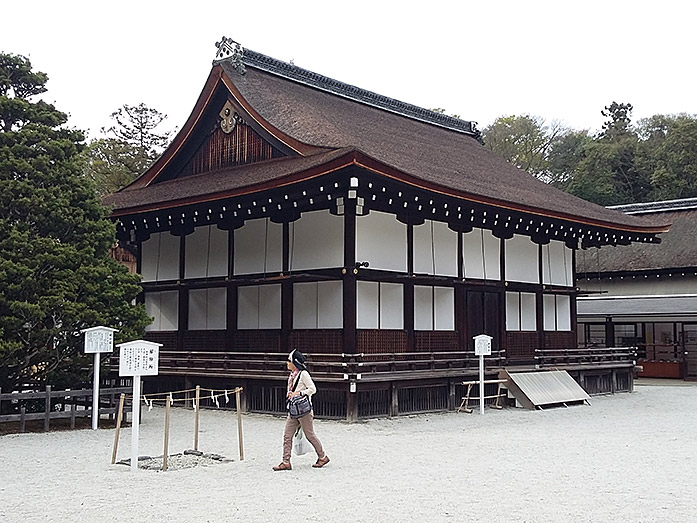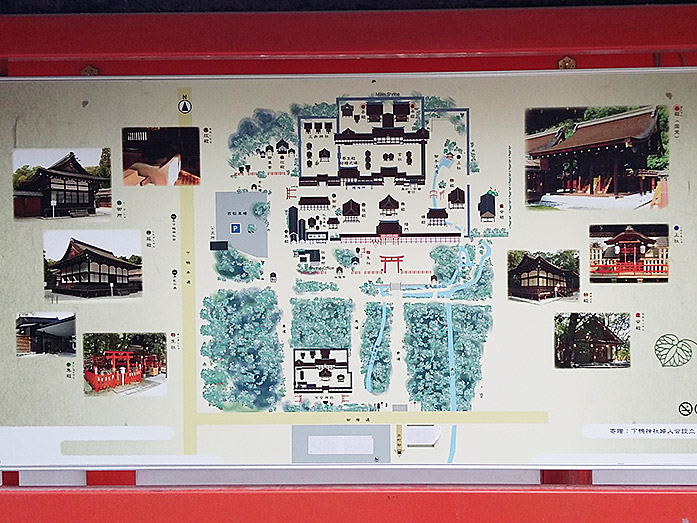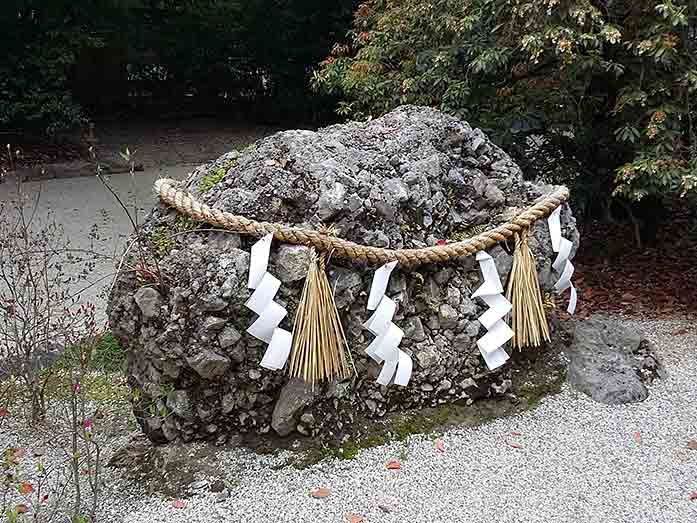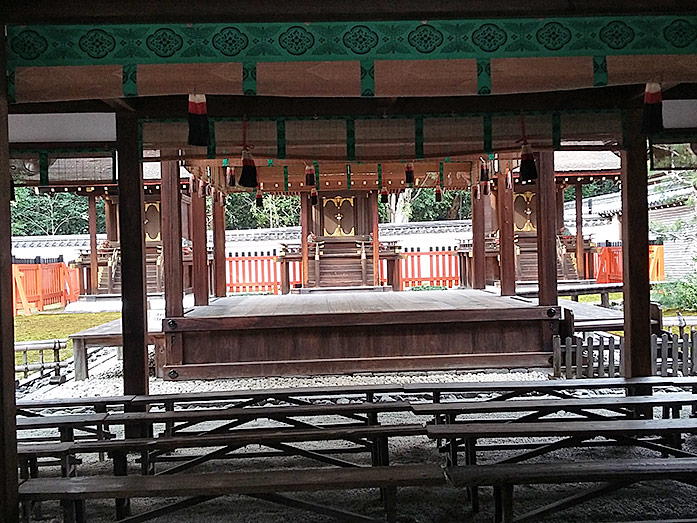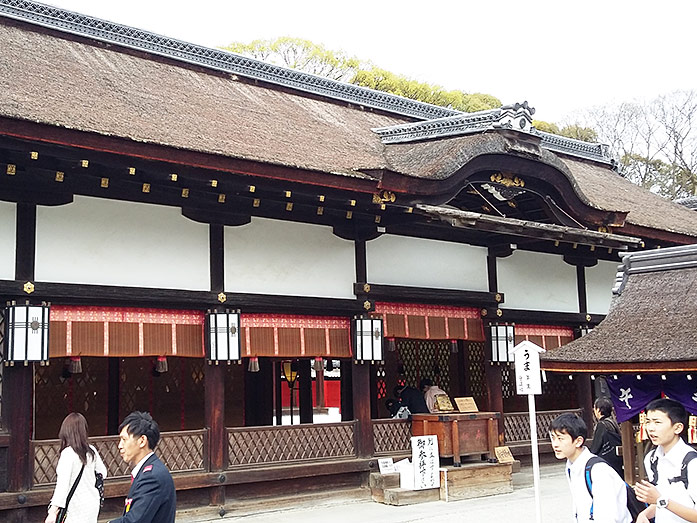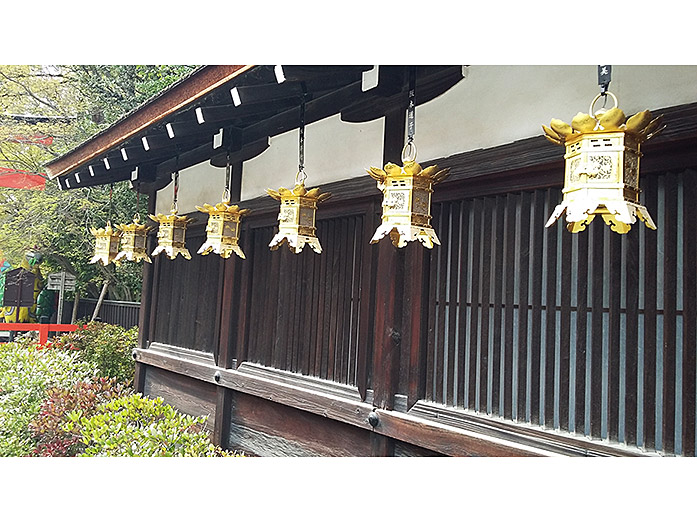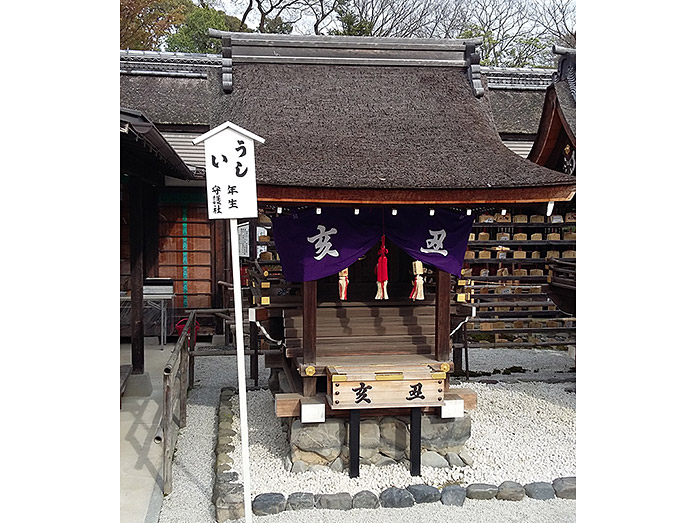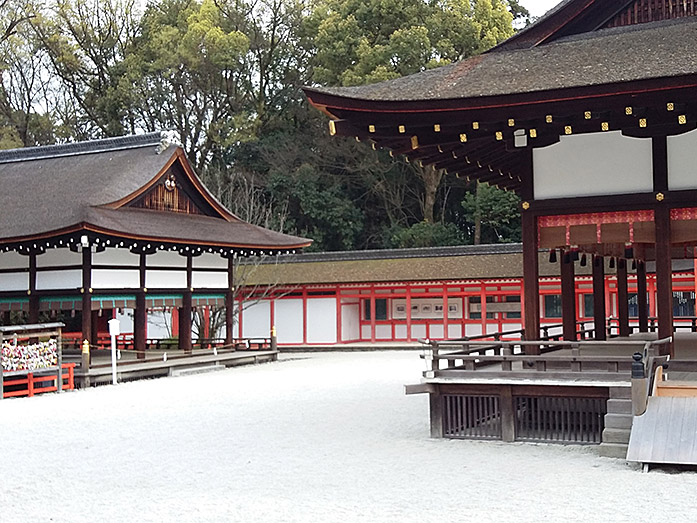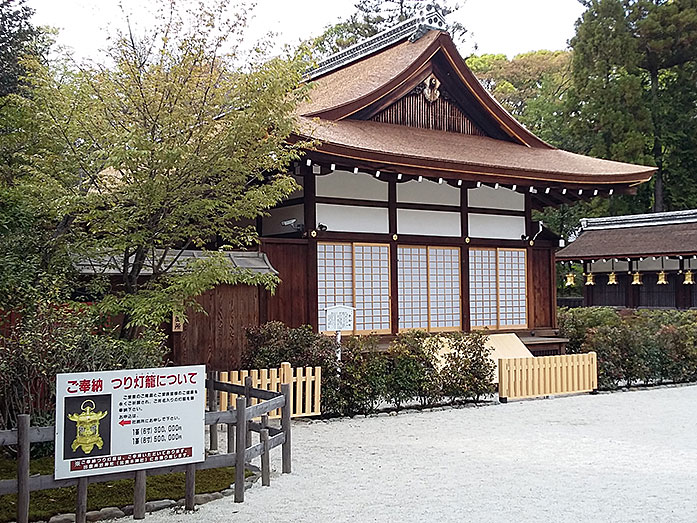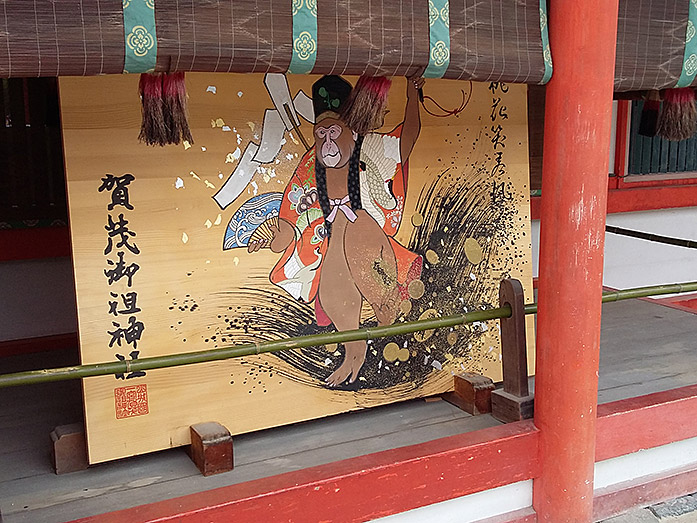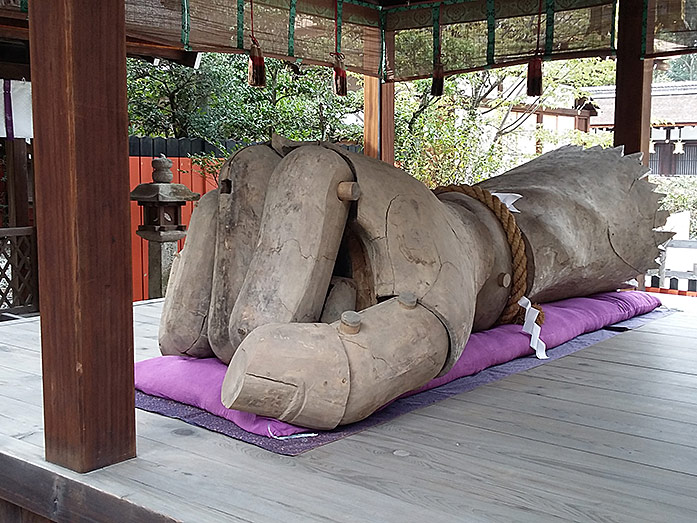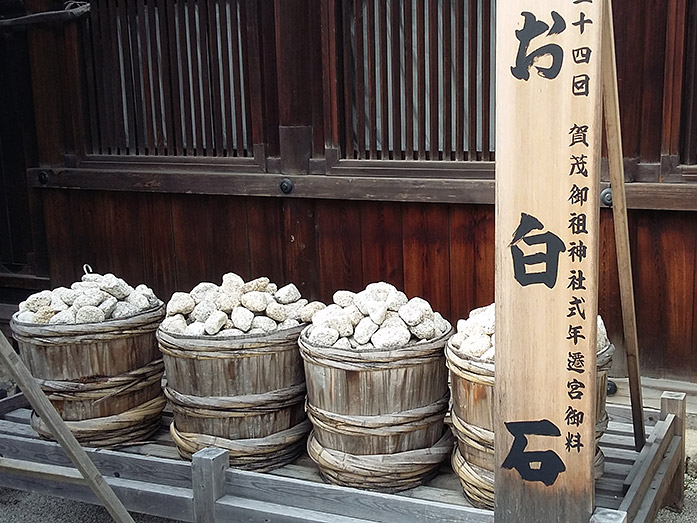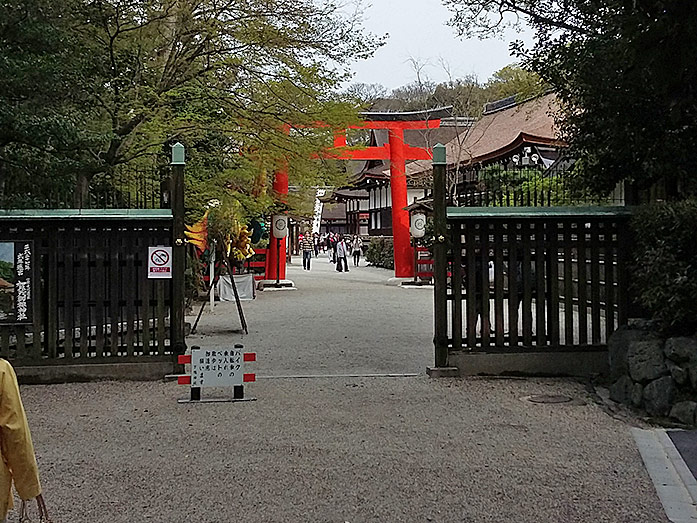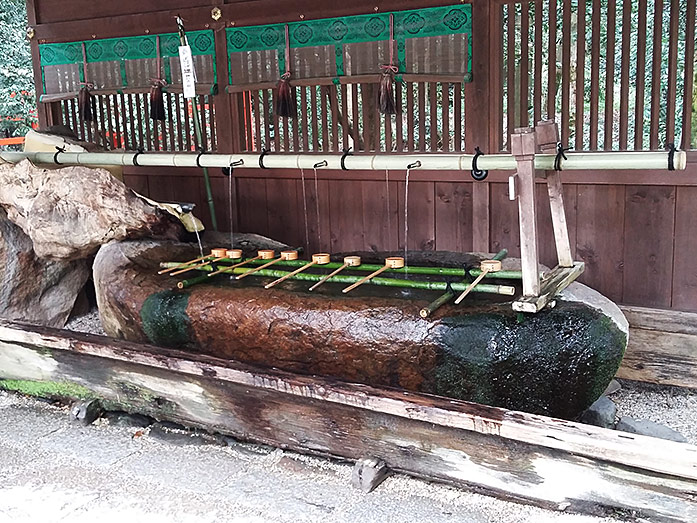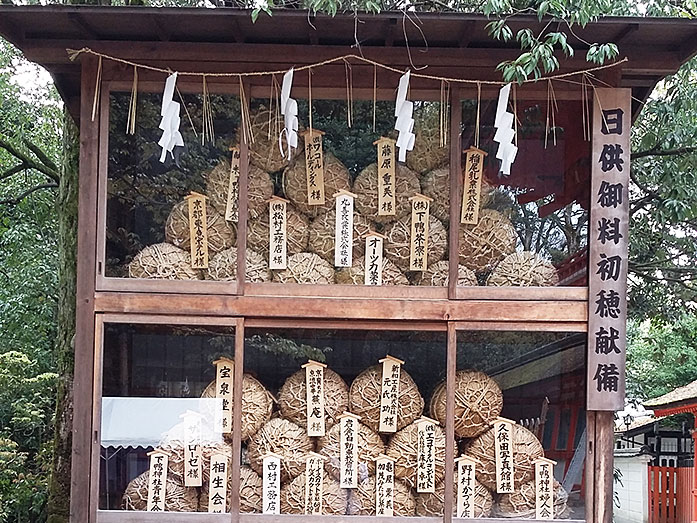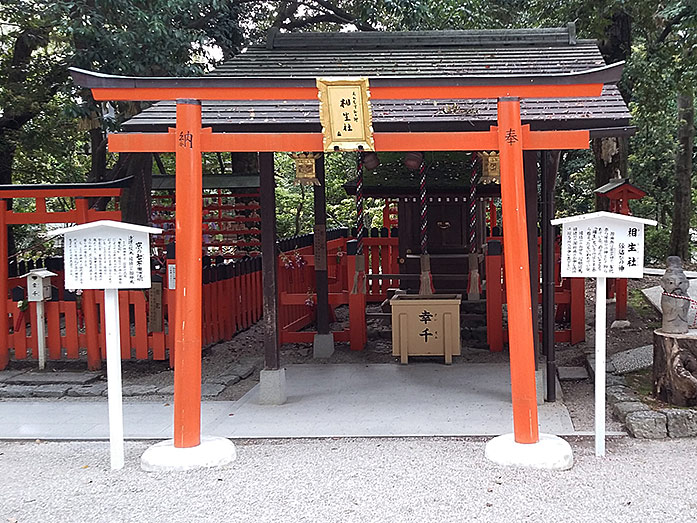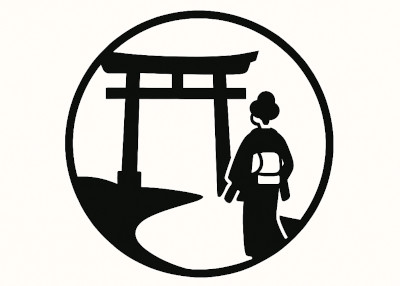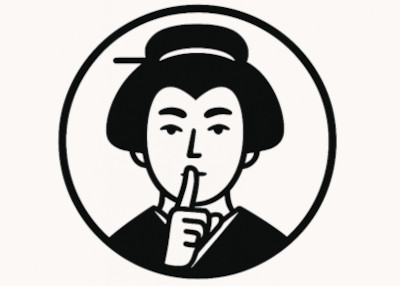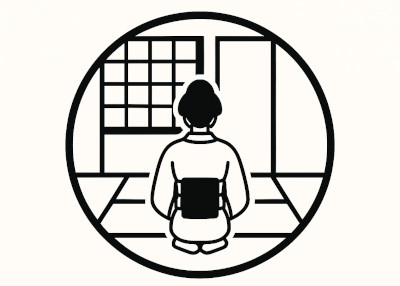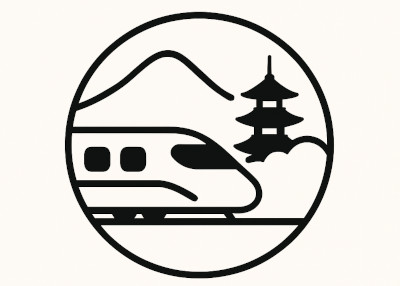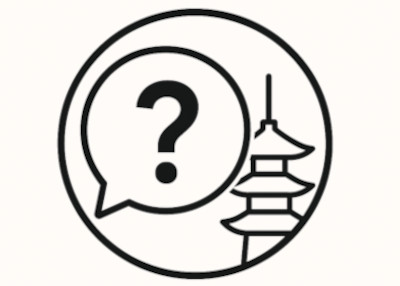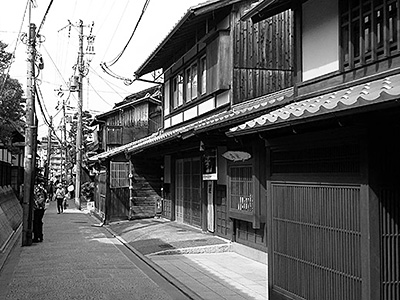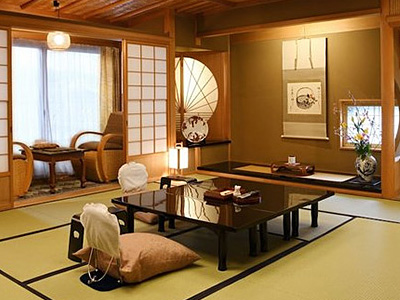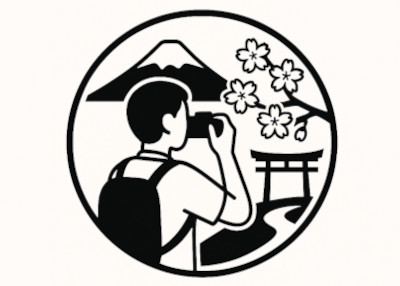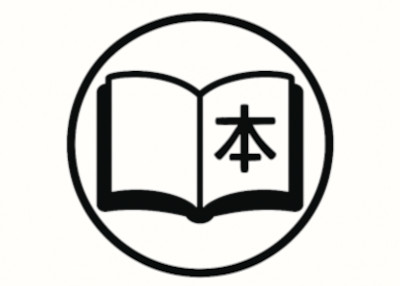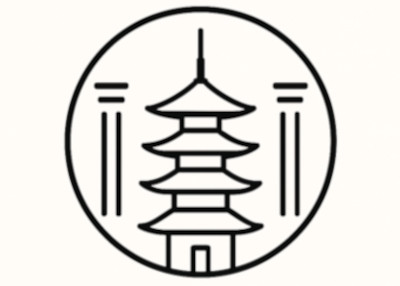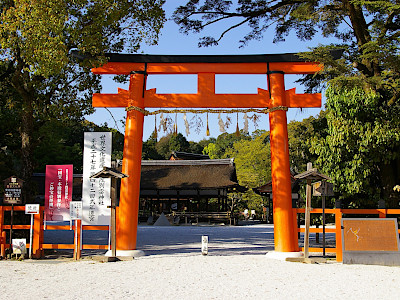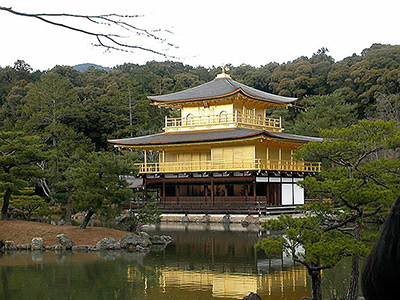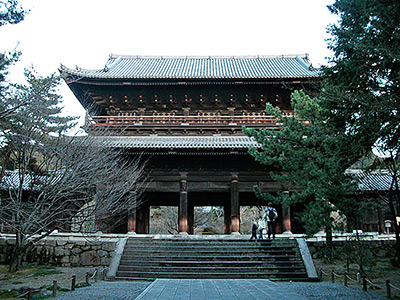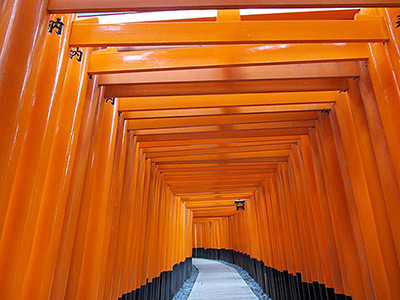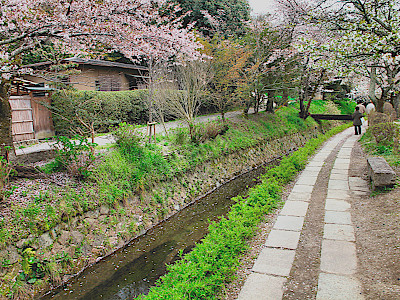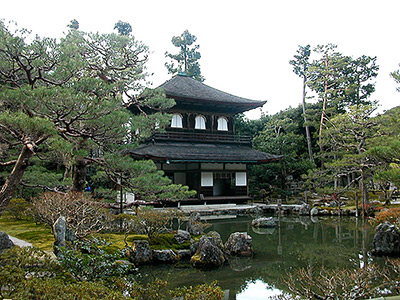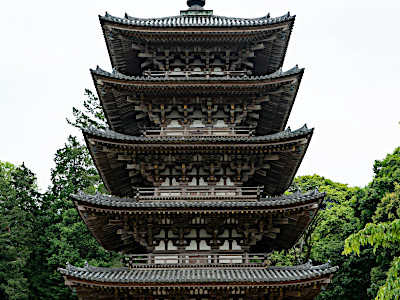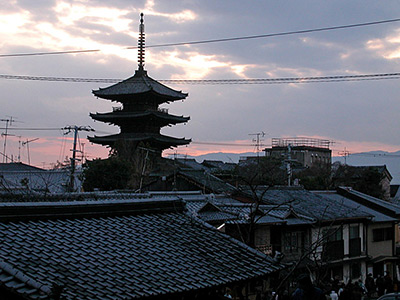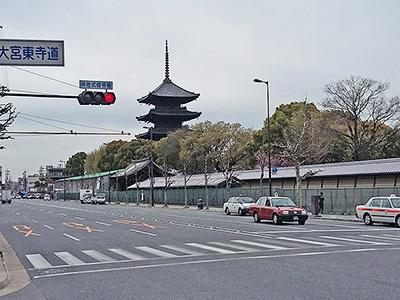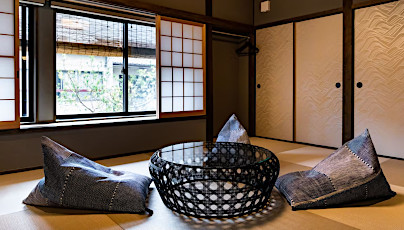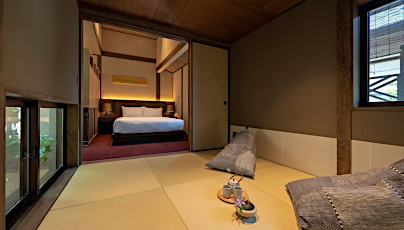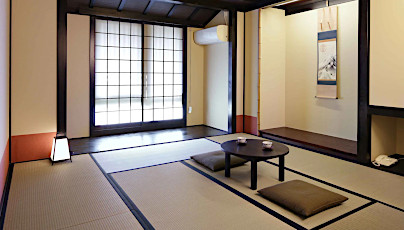Shimogamo Shrine in Kyoto
This post can contain affiliate links, which means that we may receive a small commission if you make a purchase using these links.
Facts & Figures
Shimogamo Shrine, also called Kamomioya-jinja, is a UNESCO World Heritage Site and one of the oldest and most important Shinto Shrines in Japan. Shimogamo (lit. Lower Kamo Shrine) belongs to the seventeen Historic Monuments of Ancient Kyoto and is part of the Kamo Shrines including its sister shrine Kamigamo-jinja (lit. Upper Kamo Shrine).
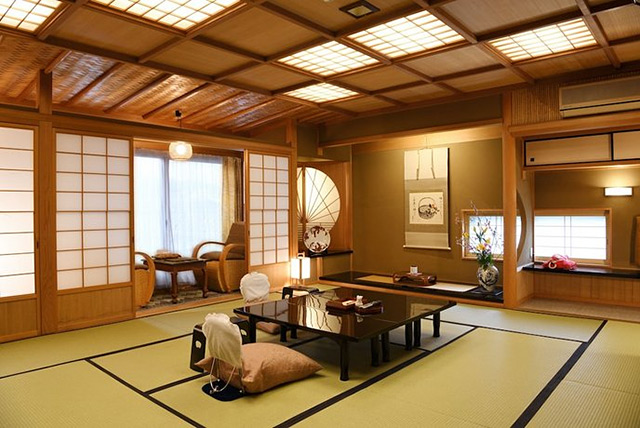 Experience the Ultimate Japanese Hospitality at a Kyoto Ryokan.
Experience the Ultimate Japanese Hospitality at a Kyoto Ryokan.
Find Your Perfect Ryokan Now >
Shimogamo is located within the ancient Tadasu-no-Mori forest. You should visit this place during the Aoi Festival in May when huge processions are held between these sacred places. The East Main Hall (Higashi Honden) and West Main Hall (Nishi Honden) of the shrine are designated National Treasures and 53 shrine buildings are considered to be important cultural properties.
- Shimogamo Shrine:
- Opening Hours - 5:30 am to 6:00 pm (during summer-time)
- Opening Hours - 6:30 am to 5:00 pm (during winter-time)
- Closed - always open, whole year
- Admission Fee - free
History
Shimogamo Shrine (Shimogamo-jinja) dates back to the 6th century. The gods enshrined here are Tamayorihime no Mikoto and Kamotaketsunomi no Mikoto. After 794 when Kyoto was designated as the capital of Japan the shrines (Shimogamo and Kamigamo) were seen as the guardian deities of the capital by the Heian Imperial court. From 1871 - 1946 Shimogamo had the 1st rank status of a government-supported shrine called Kanpei-taisha (Imperial shrine).
Location
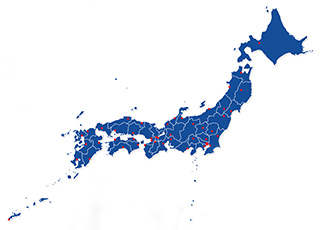
Shimogamo Shrine is located within the Sakyo district in Kyoto at the junction of the Kamo and Takano rivers.
Address: 59 Shimogamo Izumigawa-cho, Sakyo-ku, Kyoto, 606-0807
How to get to Shimogamo Shrine?
- 10min walk from Demachi-Yanagi Station served by Keihan Line
- 30min from Kyoto St. to Shimogamo-jinja mae bus stop by Kyoto City Bus 4 and 205
Sightseeing spots
Top:
Main Hall (Honden) - The Main Hall was built in 1629. The architectural style with their long roofs is called Sangensha Nagare-zukuri. The construction style is a common sight for shrines everywhere in Japan.
Two Large Halls - The East and West Halls (Higashi-Honden and Nishi-Honden) of the main shrine building are considered National Treasures. The deity Tamayorihime no Mikoto is enshrined in the East Hall and the deity Kamotaketsunomi no Mikoto in the West Hall.
Romon Gate - The vermillion-coloured wooden torii (gate) is an impressive sight and marks the entrance of the shrine complex. The gate has the status of a National Treasure.
Koto Shrines - These seven small subshrines are Important Cultural Properties and represent each of the 12 Chinese zodiac signs (dragon, monkey, cow, boar, rabbit, cock, sea horse, sheep, tiger, dog, horse, rat). People also come here to pray for good fortune and success in business. The shrines are dedicated to the deity Okuninushi-no-mikoto (god of national affairs).
Tama-hashi Bridge - The small bridge spans over the Mitarashi River. Tama-hashi is famous for its round curved shape.
Tadasu no Mori (Forest of Correction) - This ancient forest with over 40 species, some of them over 600 years old, is the perfect spot for a relaxing and refreshing stroll leading up to the main hall of the Shimogamo Shrine. Tadasu no Mori covers an area of over 120000 square meters and has the status of a national historic site.
Mitarashi Shrine (Mitarashi-sha) - The shrine is located above a stream and is dedicated to the god (deity) of purification and clean water.
Kawai Shrine (Kawai-jinja) - This shrine is very popular for women. They pray here for beauty and good looks. Mirror-shaped wooden plates called kagami-ema are used to paint their ideal face on it and hang it on a rack. The shrine is dedicated to the deity Tamayorihime-no-mikoto.
Mai-dono (Sacred Dance Hall) - The current structure with its many golden lanterns (called tsuri-doro) was built in 1628. You can see here dance performances during a matsuri (festival) and shrine ceremonies.
Festival & Events (dates can change without notice)
April
Miyako Odori (1st - 31th)
The traditional annual spring dance of the Kyoto district Gion Kobu performed by Geiko and Maiko is a must-see on your Kyoto visit. Don't miss the most popular dances the Miyako Odori "Cherry Blossom Dances" or "Dances of the Old Capital" at the Gion Kobu Kaburenjo Theater (located close to Gion Corner).
May
Yabusame-Shinji (Horseback Archery) (3rd)
During the spectacular festival, archers on horseback ride through the Tadasu-no-Mori forest and shoot at special targets. If they hit their target it is said that the harvest of crops will be successful in that year and all your wishes come true.
Aoi Matsuri (15th)
The highlight of this festival is a large parade from the Imperial Palace through the Shimogamo Shrine to the Kamigamo Shrine. More than 500 people wearing aristocratic costumes from the Heian Period (794 - 1185). The Aoi Matsuri belongs with the Gion Matsuri and Jidai Matsuri as the three most famous festivals in Kyoto.
Arashiyama Mifune Matsuri (third Sunday of May)
The first part is held at the Kuramazaki Shrine. Later a procession is leading to the Oi River, where more ceremonies and traditional dances (Funa Asobi) are held. The Arashiyama Mifune Matsuri started in 1914.
July
Gion Matsuri (whole month)
The month of July is full of different events like the Yoiyama - Kyoto's Magical Night (locals in kimonos look at the giant Gion floats the day before the parade) or the famous Yamaboko Junko (float procession on the 17th of July).
Mitarashi Festival at Shimogamo (29th - 2nd)
It is the hottest time of the year and many people come here to walk through the clear and cold water and at the same time pray for health (especially for the legs and feet) and to be relieved from the heat. The festival starts at 9 am till 9 pm.
October
Jidai Matsuri ("Festival of Ages") (22nd)
People celebrate with a large parade between Imperial Palace to Heian Shrine the anniversary of the foundation of Kyoto. App. 2000 participants wearing historical costumes from different time periods. Enjoy this great festival which lasts around 2 hours.
Where to stay in Kyoto?
Book your Flight Tickets and Rental Car for your Japan trip
Day trips from Kyoto:
Travelers who viewed Shimogamo Shrine viewed also:
Top rated - Best Machiya Houses in Kyoto
THE MACHIYA Ebisuya, 192 Ebisuya-cho Shimogyo-ku, Kyoto 600-8062
This 3-star guesthouse got an excellent rating. All 30 individually furnished rooms offer free WiFi, air conditioning, bathrooms incl. toilets, fridges, 40-inch flat-screen TVs, and more. THE MACHIYA Ebisuya is located in central Kyoto.
View on Expedia.com
This 3-star guesthouse got an excellent rating. All 30 individually furnished rooms offer free WiFi, air conditioning, bathrooms incl. toilets, fridges, 40-inch flat-screen TVs, and more. THE MACHIYA Ebisuya is located in central Kyoto.
View on Expedia.com
The Machiya Kazahaya, 570-6 Kazahayacho, Shimogyo-ku, Kyoto, Kyoto, 600-8475
The Machiya Kazahaya offers for all guest rooms free WiFi, air conditioning, safes, bathrooms with toilets, refrigerators, and much more. Enjoy also the beautiful Japanese Garden. Guests gave this property the rating - Exceptional.
View on Expedia.com
The Machiya Kazahaya offers for all guest rooms free WiFi, air conditioning, safes, bathrooms with toilets, refrigerators, and much more. Enjoy also the beautiful Japanese Garden. Guests gave this property the rating - Exceptional.
View on Expedia.com
Kyomachiya Ryokan Sakura Urushitei, 425 Kichimonjicho, Shimogyo-ku, Kyoto, 600-8069
This beautiful 3-star guesthouse offers 32 rooms with free WiFi, air conditioning, bathrooms incl. showers and toilets, refrigerators, and much more. Enjoy also the relaxing indoor public bath (no minerals). Guests gave this property the rating - Wonderful.
View on Expedia.com
This beautiful 3-star guesthouse offers 32 rooms with free WiFi, air conditioning, bathrooms incl. showers and toilets, refrigerators, and much more. Enjoy also the relaxing indoor public bath (no minerals). Guests gave this property the rating - Wonderful.
View on Expedia.com

